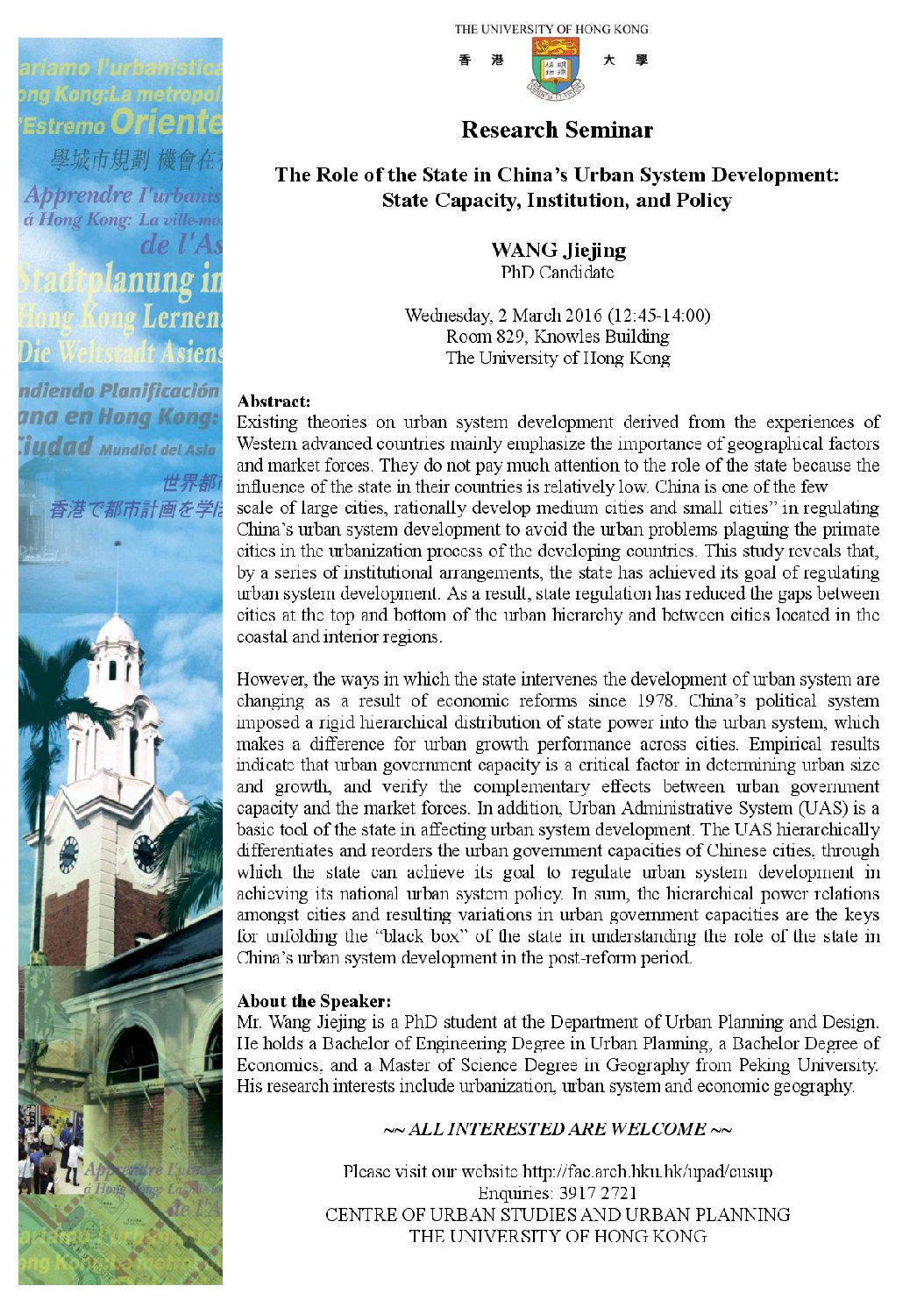
- This event has passed.
Research Seminar – The Role of the State in China’s Urban System Development: State Capacity, Institution, and Policy
2 March, 2016 @ 12:45 pm - 2:00 pm

Research Seminar
The Role of the State in China’s Urban System Development: State Capacity, Institution, and Policy
Speaker:
WANG Jiejing
PhD Candidate
Schedule:
Date: Wednesday, 2 March 2016 (12:45-14:00)
Venue: Room 829, Knowles Building, The University of Hong Kong
Abstract:
Existing theories on urban system development derived from the experiences of Western advanced countries mainly emphasize the importance of geographical factors and market forces. They do not pay much attention to the role of the state because the influence of the state in their countries is relatively low. China is one of the few
scale of large cities, rationally develop medium cities and small cities” in regulating China’s urban system development to avoid the urban problems plaguing the primate cities in the urbanization process of the developing countries. This study reveals that, by a series of institutional arrangements, the state has achieved its goal of regulating urban system development. As a result, state regulation has reduced the gaps between cities at the top and bottom of the urban hierarchy and between cities located in the coastal and interior regions.
However, the ways in which the state intervenes the development of urban system are changing as a result of economic reforms since 1978. China’s political system imposed a rigid hierarchical distribution of state power into the urban system, which makes a difference for urban growth performance across cities. Empirical results indicate that urban government capacity is a critical factor in determining urban size and growth, and verify the complementary effects between urban government capacity and the market forces. In addition, Urban Administrative System (UAS) is a basic tool of the state in affecting urban system development. The UAS hierarchically differentiates and reorders the urban government capacities of Chinese cities, through which the state can achieve its goal to regulate urban system development in achieving its national urban system policy. In sum, the hierarchical power relations amongst cities and resulting variations in urban government capacities are the keys for unfolding the “black box” of the state in understanding the role of the state in China’s urban system development in the post-reform period.
About the Speaker:
Mr. Wang Jiejing is a PhD student at the Department of Urban Planning and Design. He holds a Bachelor of Engineering Degree in Urban Planning, a Bachelor Degree of Economics, and a Master of Science Degree in Geography from Peking University. His research interests include urbanization, urban system and economic geography.
~~ ALL INTERESTED ARE WELCOME ~~
Please visit our website https://fac.arch.hku.hk/upad/cusup Enquiries: 3917 2721
CENTRE OF URBAN STUDIES AND URBAN PLANNING THE UNIVERSITY OF HONG KONG
